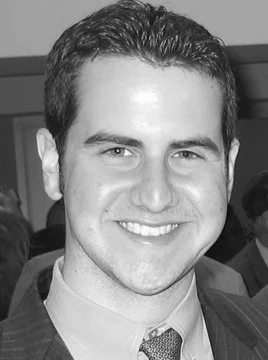On April 5, the Society of Fellows and Heyman Center for Humanities celebrated the publication of Prof. Jeremy Dauber’s latest book, American Comics: A History.
Comics have conquered America. From our multiplexes, where Marvel and DC movies reign supreme, to our television screens, where comics-based shows like The Walking Dead have become among the most popular in cable history, to convention halls, best-seller lists, Pulitzer Prize–winning titles, and MacArthur Fellowship recipients, comics shape American culture, in ways high and low, superficial, and deeply profound.
In American Comics, Jeremy Dauber takes readers through their incredible but little-known history, starting with the Civil War and cartoonist Thomas Nast, creator of the lasting and iconic images of Uncle Sam and Santa Claus; the golden age of newspaper comic strips and the first great superhero boom; the moral panic of the Eisenhower era, the Marvel Comics revolution, and the underground comix movement of the 1960s and ’70s; and finally into the twenty-first century, taking in the grim and gritty Dark Knights and Watchmen alongside the brilliant rise of the graphic novel by acclaimed practitioners like Art Spiegelman and Alison Bechdel.
Dauber’s story shows not only how comics have changed over the decades but how American politics and culture have changed them. Throughout, he describes the origins of beloved comics, champions neglected masterpieces, and argues that we can understand how America sees itself through whose stories comics tell. Striking and revelatory, American Comics is a rich chronicle of the last 150 years of American history through the lens of its comic strips, political cartoons, superheroes, graphic novels, and more.
About the Author:
Jeremy Dauber is the Atran Professor of Yiddish Language, Literature and Culture and director of Columbia's Institute of Israel and Jewish Studies. He is the author of Antonio's Devils: Writers of the Jewish Enlightenment and the Birth of Modern Hebrew and Yiddish Literature (2004); In the Demon's Bedroom: Yiddish Literature and the Early Modern (2010); The Worlds of Sholem Aleichem (2013); and Jewish Comedy (2017). His research interests include Yiddish literature; comparative Jewish literature; the Yiddish theater; American Jewish literature and popular culture; and American literature and popular culture.
About the Speakers:
Marianne Hirsch is William Peterfield Trent Professor of English and Comparative Literature at Columbia University and Professor in the Institute for Research on Women, Gender, and Sexuality. Her work combines feminist theory with memory studies, particularly the transmission of memories of violence across generations. Her recent books include School Photos in Liquid Time: Reframing Difference, co-authored with Leo Spitzer (2020), and the co-edited volumes Imagining Everyday Life: Engagements with Vernacular Photograpahy (2020) and Women Mobilizing Memory (2019).
Rachel Adams is Professor of English and Comparative Literature at Columbia University. She specializes in 20th- and 21st-century literatures of the United States and the Americas, disability studies and health humanities, media studies, theories of race, gender, and sexuality, and food studies. Her most recent book is Raising Henry: A Memoir of Motherhood, Disability, and Discovery, published by Yale University Press in 2013 and winner of the 2014 Delta Kappa Gamma Educators' Award.
Tahneer Oksman is a writer, teacher, and scholar. She is Associate Professor of Academic Writing at Marymount Manhattan College, where she teaches classes in writing, literature and comics, and journalism. Her interests revolve around comics and visual narrative, contemporary feminist literature, and memoir studies as well as twentieth- and twenty-first century Jewish American literature and culture. She is the author of "How Come Boys Get to Keep Their Noses?”: Women and Jewish American Identity in Contemporary Graphic Memoirs (2016).
Victor Lavalle is Associate Professor of Writing at Columbia University. His most recent novel, The Changeling, was named one of the 10 Best Books of 2017 by Time Magazine and USA Today, and was a Notable Book of the Year by the New York Times, The San Francisco Chronicle and more. He is also the author is Slapboxing with Jesus, The Ecstatic, Big Machine, The Devil in Silver, and The Ballad of Black Tom. He is also the writer/creator of a comic book, Destroyer. His awards include the Whiting Writers Award, a USA Ford Fellowship, a Guggenheim Fellowship, a Shirley Jackson Award and a British World Fantasy Award, among others.















